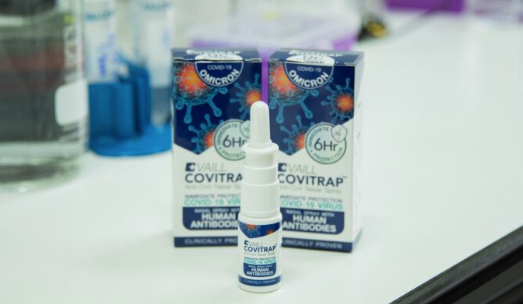
A research team at the Centre of Excellence in Systems Biology, Faculty of Medicine, Chulalongkorn University, Thailand has identified highly effective antibodies against COVID-19 from the human body. These antibodies have been developed into an innovation called COVITRAP, the world's first nasal spray that traps and inhibits the COVID-19 virus using antibodies.
This spray has been certified as a medical device, and the team is confident in its efficacy for dealing with COVID-19 alongside other preventive measures.
The research team collected blood samples from over 300 patients who had recovered from COVID-19 to find B cells that are most effective at producing antibodies that can fight the COVID-19 virus.
From millions of B cells, they used the process of High-Throughput Screening to discover the B cells that can produce antibodies that can effectively neutralise COVID-19. The genetic code for the immunoglobulin gene of these B cells was then sequenced before entering the industrial production process to obtain large quantities of the antibody.
The disadvantage of COVITRAP is that it does not last long (about 6 hours). Since the body is not stimulated to produce antibodies like vaccines, the ready-made antibodies that enter the nasal cavity through COVITRAP are rapidly cleared via the mucociliary clearance process. In contrast, the effects of immune activation from a vaccine last much longer.




